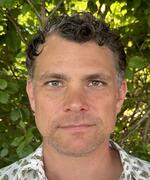Rights Refused: Grassroots Activism and State Violence in Myanmar
Rights Refused: Grassroots Activism and State Violence in Myanmar
Elliott Prasse-Freeman, Assistant Professor, Department of Sociology and Anthropology, National University of Singapore
Through ethnography of activist life in Myanmar focusing on the years 2014 and 2015 (during the “transition” era), extending into the 2021 coup and the revolution against it, the paper demonstrates how the modes of resistance and refusal improvised and developed during the transition informed the uprising that rages now. It theorizes the relationship between the state apparatus and activists (and average subjects) as not one of pursuit and evasion, but as mutual rejection, as both state and citizen often turn away from each other: the state refuses to govern; citizens avoid getting caught up in predatory state institutions and processes. Therefore, social power becomes a rhizomatic pursuit of asymmetry. This contrasts with an “arborescent” model of power, in which actors pursue capture of hierarchical structures but in so doing make themselves vulnerable to attacks (in terms of physical violence or political claims). Conversely, control is forfeited as political strategy, undermining the ability of counterclaims to be advanced. Therefore, activists must presence the state through moments of resistance, but they must generally subsume such tactics to broader strategies of refusal, which the paper theorizes as evasion of direct contestation with sovereign power (which would invite annihilation), and instead as a maneuver against and with a regime’s particular form of biopolitical regulation.

Elliott Prasse-Freeman an assistant professor in the Department of Sociology and Anthropology at the National University of Singapore, received his PhD from the Department of Anthropology at Yale University. He has conducted long-term fieldwork in Myanmar, and his recently published book (Rights Refused, Stanford University Press) foucses on Burmese subaltern political thought as adduced from an extended ethnography of activism and contentious politics in the country’s semi-authoritarian setting. Prasse-Freeman also has a book project on Rohingya ethnogenesis and political subjectivity amidst dislocation and mass violence. His work has appeared in journals such as American Ethnologist, Current Anthropology, Journal of Peasant Studies, Public Culture, and Comparative Studies in Society and History, and he’s part of the editorial team at Anthropological Theory, a journal you should consider submitting to.
Wednesday, November 8, 2023
12:00 Noon
Room 203, Luce Hall
34 Hillhouse Avenue
Hybrid event
Register on Zoom here >>
See CSEAS Current Calendar of Events and Activities
